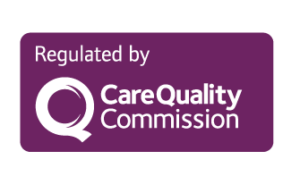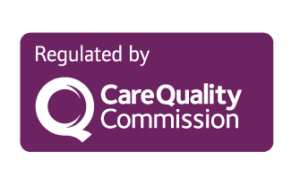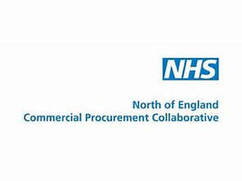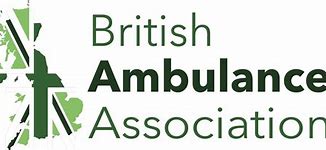Help in a mental health crisis
|
Help during office hours
(9am - 5pm, Monday to Friday)If you already use mental health services, or care for someone who does, during office hours your first point of contact should be the person that you/they usually see (the care coordinator, or named lead professional). Their contact details, or the contact details of the care team, are contained in your care plan and on the contact card. Help out of office hours (5pm - 9am, Monday to Friday; and Saturdays, Sundays and bank holidays)For out of hours urgent advice please call the relevant service below: |
Mental health emergency - if you're in crisis or despair. If your mental or emotional state quickly gets worse, or you’re in crisis or despair, it's important to get help quickly. You’re not alone; talk to someone you trust. Sharing a problem is sometimes the first step to recovery.
Help and support
Someone who’s having suicidal thoughts may not ask for help, but that doesn’t mean they don’t want help and support. It can be difficult finding the words to express what they are feeling.
If you're concerned about someone, you could:
Suicide prevention begins with recognising warning signs that someone may be considering taking their own life. The signs include:
Your care plan
If you have a care plan, there are names and numbers to contact in an emergency. If you were or are being treated for a mental illness, you should have a care plan.
Where to go for help
If you don't have a care plan, or can't find it, you could:
All trust areas have a mental health crisis team with psychiatric nurses, social workers and support workers. They:
If you're caring for someone, there are support services that can help. If they're in immediate danger, telephone the police on 999.
If you need someone to talk to
If you want to talk about how you feel or how you deal with someone else's behaviour, you can speak to a friend, family member or your GP.
More useful links
Help and support
Someone who’s having suicidal thoughts may not ask for help, but that doesn’t mean they don’t want help and support. It can be difficult finding the words to express what they are feeling.
If you're concerned about someone, you could:
- show you care by asking saying something like: 'I’m worried about you and I want to help'
- discuss suicide – asking about it won’t put the idea in people’s heads. You could ask then: ‘Do you feel like harming yourself?’ or ‘Do you feel like ending your life?’
- call for help and encourage them to look for help. You could say: ‘You are not alone and there are people who can help you out of this situation’ or ‘I will stay with you until you get help’
Suicide prevention begins with recognising warning signs that someone may be considering taking their own life. The signs include:
- talking about death or suicide
- pre-occupation with death
- depression
- hopelessness
- alcohol and drug misuse
- low self-esteem
- bereavement
- relationship break-up
- changes in behaviour
- previous history of suicide attempts
- self-loathing or self-hatred
- getting affairs in order
- social isolation
- self-destructive behaviour
- sudden sense of calm or appearing very upbeat following depression
Your care plan
If you have a care plan, there are names and numbers to contact in an emergency. If you were or are being treated for a mental illness, you should have a care plan.
Where to go for help
If you don't have a care plan, or can't find it, you could:
- make an emergency appointment with your doctor, or call your doctor's surgery out-of-hours service if the emergency is at night or the weekend
- call your mental health worker if you have one
- go to the accident and emergency department at your local hospital
All trust areas have a mental health crisis team with psychiatric nurses, social workers and support workers. They:
- carry out mental health assessments
- provide support and short-term help until another team is available or the help is no longer needed
If you're caring for someone, there are support services that can help. If they're in immediate danger, telephone the police on 999.
If you need someone to talk to
If you want to talk about how you feel or how you deal with someone else's behaviour, you can speak to a friend, family member or your GP.
More useful links
- Directory of Service (Belfast Health and Social Care Trust website)(external link opens in a new window / tab)
- Directory of Service (Northern Health and Social Care Trust website)(external link opens in a new window / tab)
- Directory of Service (South Eastern Health and Social Care Trust website)(external link opens in a new window / tab)
- Directory of Service (Southern Health and Social Care Trust website)(external link opens in a new window / tab)
- Directory of Service (Western Health and Social Care Trust website)
NHS 111
Telephone: 111
NHS Choices website: www.nhs.uk
Open 24 hours a day, 365 days a year.
Offering advice and support about what to do in a mental health crisis.
If you are calling about a friend or relative, NHS 111 request that you are within close proximity to the patient and have their consent to share information. The NHS 111 call adviser may ask to speak to the patient directly. Should you not be in close proximity to the patient, the NHS 111 adviser will ask to call the patient directly to discuss your concerns. It is required that the caller phones the patient first to inform them that an NHS 111 adviser will be calling.
NHS Choices website: www.nhs.uk
Open 24 hours a day, 365 days a year.
Offering advice and support about what to do in a mental health crisis.
If you are calling about a friend or relative, NHS 111 request that you are within close proximity to the patient and have their consent to share information. The NHS 111 call adviser may ask to speak to the patient directly. Should you not be in close proximity to the patient, the NHS 111 adviser will ask to call the patient directly to discuss your concerns. It is required that the caller phones the patient first to inform them that an NHS 111 adviser will be calling.
Samaritans
Telephone: 116 123 (freephone from mobiles and landlines)
Web: www.samaritans.org
Offering emotional support 24 hours a day.
Just having someone to talk to that isn't family or friends can be a tremendous help.
Web: www.samaritans.org
Offering emotional support 24 hours a day.
Just having someone to talk to that isn't family or friends can be a tremendous help.
Lifeline
If you or someone you know needs help, you can telephone Lifeline free at any time. Lifeline is a crisis response helpline available 24 hours a day, seven days a week to people in Northern Ireland. It offers immediate help over the telephone if you, or someone you know, is in distress or despair.
- telephone: 0808 808 8000
- Lifeline freephone helpline
HopelineUK - young people under the age of 35
Young people under the age of 35 who may be having thoughts of suicide and those concerned about the mental health of a young person can contact HOPELineUK.
A HOPELineUK advisor will hear about the things that are happening in your life that are contributing to your thoughts of suicide and provide advice about how you can cope with your thoughts of suicide, or where you can access help. You can also speak to our HOPELineUK advisors to get advice about how to start a conversation about suicide with someone you are concerned about, and how to best support them.
Call: 0800 068 41 41
Text: 07786209697
Email: [email protected]
Opening hours are 10am-10pm weekdays, 2pm-10pm weekends, and 2pm-5pm Bank Holidays.
A HOPELineUK advisor will hear about the things that are happening in your life that are contributing to your thoughts of suicide and provide advice about how you can cope with your thoughts of suicide, or where you can access help. You can also speak to our HOPELineUK advisors to get advice about how to start a conversation about suicide with someone you are concerned about, and how to best support them.
Call: 0800 068 41 41
Text: 07786209697
Email: [email protected]
Opening hours are 10am-10pm weekdays, 2pm-10pm weekends, and 2pm-5pm Bank Holidays.
SANEline
Telephone: 0300 304 7000
Web: www.sane.org.uk
SANEline runs a national, out-of-hours mental health helpline offering specialist emotional support and information to anyone affected by mental illness, including family, friends and carers. We are open every day of the year from 6pm to 11pm.
Web: www.sane.org.uk
SANEline runs a national, out-of-hours mental health helpline offering specialist emotional support and information to anyone affected by mental illness, including family, friends and carers. We are open every day of the year from 6pm to 11pm.
Rehab 4 Alcoholism
- Rehab 4 Alcoholism is a helpline for people experiencing addiction. This helpline aims to stop addiction before it becomes too late. www.rehab4alcoholism.com 0800 111 4108
Childline
If you're under 19, you can contact Childline:
- telephone: 0800 1111
- Childline
- Young healthy minds website(external link opens in a new window / tab)
First time needing support in a mental health crisis?
If you, or a friend or relative are experiencing mental health problems for the first time and need emergency treatment or advice during office hours, then you should contact your general practitioner (GP). Your GP is your family doctor, the doctor you would normally see if you are ill or concerned about any aspect of your health. They will be able to refer you to the most appropriate mental health service in your area. If you need to contact someone out of hours, please ring NHS 111 (see above).
If you don’t have a GP, use the NHS Choices website to locate the nearest one to you.
If you don’t have a GP, use the NHS Choices website to locate the nearest one to you.















